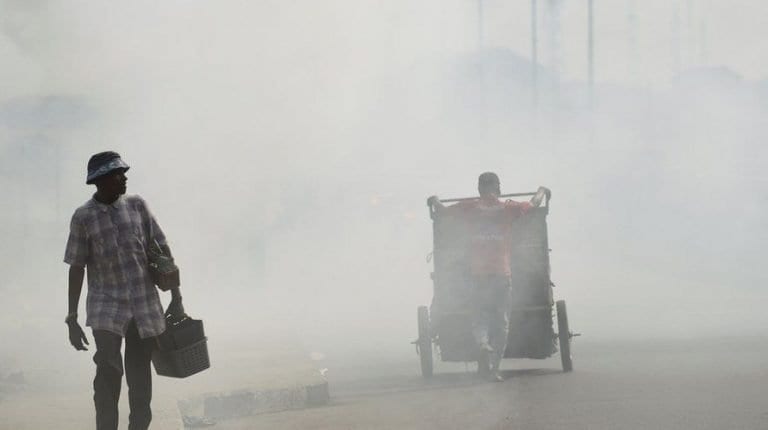By Kelechi Esogwa-Amadi
When Rivers State Governor, Nyesom Wike, in January this year, declared a total war against illegal bunkering and artisanal refining of crude oil, many thought it would be a task too herculean to carry out, given how rampant the act had become across the length and breadth of the state, the subtleties surrounding it and the rumoured involvement of high-profile individuals.
But true to type, Governor Wike, in his usual pragmatic manner, began to tackle the triple vices, shunning all voices of discouragement and sentiments raised in some quarters; he knew he would not achieve much success fighting it alone, so, he involved the local government chairmen in the war, even promising incentives to spur them into action.
He mandated them to comb their various LGAs and destroy any illegal refining sites found, also engaging the services of security agencies in the anti bunkering, illegal refining/soot war.
These strategies worked wonders, as almost immediately, all the stakeholders swung into action and within the next four to five weeks, the airwaves were flooded with news of discovery and bursting of illegal refining sites in many of the LGAs in the state.
The result is a radical reduction, if not complete eradication of the pollution-causing black soot menace in Rivers.
To sustain this success, the Wike government introduced a petroleum products passport programme, an initiative meant to monitor and/or regulate the sale of petroleum products in the state to ensure that only the legally refined products are sold.
Governor Nyesom Wike, who insists that oil bunkering is the worst economic sabotage, also recently set up a task force against illegal refining, as part of moves to check the resurgence of illegal bunkering/refining of crude oil and the resultant black soot-induced pollution.
While this feat by Governor Wike remains commendable and continues to earn him plaudits, it is imperative to draw attention to another source of environmental pollution that is being overlooked by the Nigerian authorities: the emission of carbon monoxide by vehicles with spoilt exhaust pipes.
These rickety vehicles indiscriminately pollute the air with the carbon smoke they emit on our roads on daily basis, causing the general public to inhale the hazardous substance.
Just like in the case of ‘black’ soot, the continuous inhaling of this carbon monoxide has grave health implications, such as respiratory problems in the body. It can contaminate and damage the liver, lungs, kidney and other internal body organs, resulting in cancerous ailments.
In Port Harcourt, these carbon smoke-emitting vehicles ply the roads on daily basis, appearing more along Ikwerre, NTA, Airport, Iwofe and East-West Roads. This is because a majority of these vehicles are buses, taxis, lorries and tankers.
While the buses and taxis operate as commercial vehicles along the Choba-Ada George-Mile 3-Mile 1-Borokiri route, Choba-Rumuokwuta-Rumuola route, Igwuruta-Rumuokoro-Lagos/Borokiri-New Road route, Ogbogoro-Iwofe-Mile 3-Mile 1 route and Aba Road-Lagos route, the big lorries and tankers mainly ply the Akpajo-Eleme route of the East-West Road and the Ikwerre-Lagos Route in the course of going to load petroleum products.
Checks have revealed that 1 out of 3 commercial Danfo or Vanagon buses emits carbon monoxide because of bad exhaust pipe; 1 out of 4 taxis emit it while 1 out of 2 tankers emit it each time they fire their throttles. And the helpless residents: senior citizens, adults, children, infants, toddlers, pregnant women and the babies in their wombs, are all inhaling the harmful substance and dying silently.
Among these commercial buses, taxis, lorries and tankers plying these routes are the carbon monoxide-emitting ones. The worrisome aspect of this issue is that the owners or drivers of these hazardous substance-emitting vehicles seem to be unperturbed about the condition of their vehicles.
Two factors could, perhaps, be responsible for this nonchalance, either they are ignorant of the health effects of the substance their vehicles are emitting or they are aware but feel unconcerned – a complacent attitude that has unfortunately become part of the character of many Nigerians.
And this is why the Rivers State Government has to develop strategies to tackle this overlooked pollution that is threatening the lives of Rivers residents.
One is therefore optimistic that this clarion call will receive the state government’s urgent attention, at least to save the masses whose lives are endangered by this harmful substance emitted on daily basis by vehicles with bad exhaust pipes.
The residents, who know the implication of what they’re forced to inhale every day, are not happy about it but because there’s nothing they can do to stop it than to keep enduring. They know that the Nigerian government has allowed the country to be a dumping ground for used vehicles referred to in local parlance as Tokunbo.
However, the state government can, as usual, rescue its citizens from this menace, and one effective way of doing this is by banning all carbon monoxide-emitting vehicles from plying Rivers roads just as illegal refineries were banned in the state.
The state government could go a step further by partnering with the Federal Road Safety Corps (FRSC), the Vehicle Inspection Officers (VIO), the Police, the Civil Defence Corps and the National Union of Road Transport Workers to ensure compliance with the ban.
To give this clampdown a human face, a caveat could be provided that such vehicles could return to the roads once their exhaust pipes are repaired or replaced to avoid future emission of carbon monoxide.
This move will, in no small measure, help to restore more sanity on our roads, ensure a cleaner environment, preserve the health of Rivers residents and further project Port Harcourt as a fast emerging, mega, garden smart city comparable only to Lagos and Abuja.




